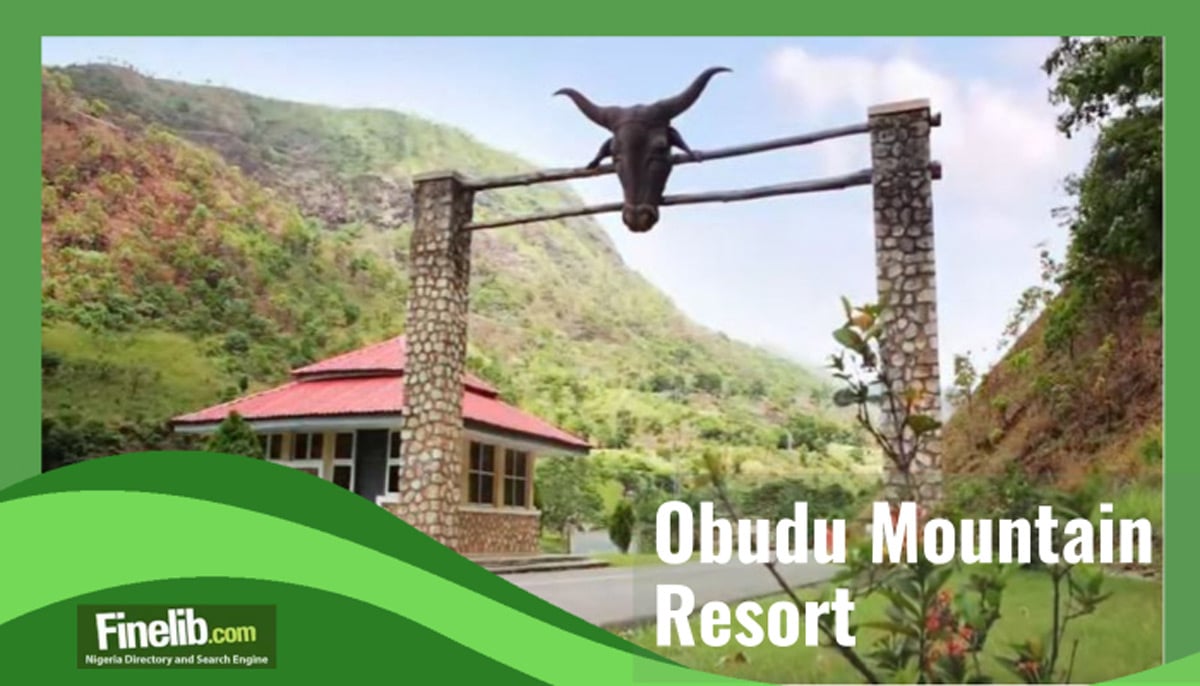Afi Mountain Wildlife Sanctuary: Exploring Nigeria's Biodiversity Haven

Nestled in the heart of Cross River State, Nigeria, the Afi Mountain Wildlife Sanctuary is a testament to the country's commitment to conservation. The purpose of establishing this sanctuary in 2000 was to rescue and ensure the survival of endangered animals.
Spanning approximately 100 square kilometers, the Afi Mountain Wildlife Sanctuary is a biodiverse haven, housing a variety of unique flora and fauna.
This sanctuary is a treasure trove of endangered wildlife, from the majestic Cross River gorilla to the elusive Nigeria-Cameroon chimpanzee. Join us as we embark on a journey to explore and uncover the wonders of the Afi Mountain Wildlife Sanctuary.
Exploring Afi Mountain Wildlife Sanctuary
Visiting the Afi Mountain Wildlife Sanctuary offers a unique opportunity to experience the beauty and biodiversity of Nigeria's natural heritage. The sanctuary provides accommodation at the Afi Mountain Ranch, where visitors can stay in comfortable cabins. From here, they can embark on guided tours and explore the sanctuary's rich ecosystems.
One of the highlights of a visit to the Afi Mountain Wildlife Sanctuary is the walkway that runs through the forest canopy, suspended 25 meters above the jungle floor. This elevated vantage point offers a breathtaking perspective and allows visitors to witness the lush greenery and wildlife from a unique and immersive standpoint.
Visitors may encounter various wildlife species throughout the sanctuary, including primates like Cross River gorillas, Nigeria-Cameroon chimpanzees, and drills.
The sanctuary's diverse birdlife is also a sight, with European migratory barn swallows adding to its avian splendor. Explorers can indulge in birdwatching, capturing photographs of the vibrant feathered inhabitants.
Best Time to Visit
The Afi Mountain Wildlife Sanctuary can be visited annually, offering different experiences each season. However, the dry season, from November to February, is generally considered the best time to explore the sanctuary. During this period, the weather is pleasant, and the wildlife is more active, increasing the chances of spotting rare and endangered species.
How to Get There
Getting to the Afi Mountain Wildlife Sanctuary in Nigeria requires some planning and effort, but the experience is worth it. Here are the general steps to help you get there:
1. By Air: The closest major airport to the Afi Mountain Wildlife Sanctuary is the Margaret Ekpo International Airport in Calabar. From there, you can take a taxi or arrange transportation to the sanctuary, which is approximately 4-5 hours away by road.
2. By Road: The sanctuary is located near the border of Nigeria and Cameroon, in the Cross River State. If you are coming from Calabar, you can take the Calabar-Ikom Highway and then connect to the Ikom-Obudu Road. From there, you can follow signs or ask locals for directions to the Afi Mountain Wildlife Sanctuary.
3. Local Transportation: Once you reach the vicinity of the sanctuary, you may need to arrange for local transportation to the sanctuary's entrance. It is advisable to contact the shelter in advance to inquire about transportation options or seek assistance from local tour operators.
4. Entrance and Guided Tours: The Afi Mountain Wildlife Sanctuary is a protected area, and entrance fees or permits may be required to access the sanctuary. Local communities' engagement in conservation initiatives instills a sense of ownership and accountability toward safeguarding the sanctuary's wildlife.
Guided tours are also available, which can enhance your experience by providing knowledge about the outdoors and conservation efforts in the area.
Conservation Significance
Formerly part of the Afi River Forest Reserve, the Afi Mountain Wildlife Sanctuary was established to enhance protection for several endangered species. Among these species are:
-
The critically endangered Cross River gorilla.
-
The Nigeria-Cameroon chimpanzee.
-
The drill.
-
The grey-necked rockfowl.
This sanctuary encompasses a diverse range of habitats, including lowland and sub-montane forests with rocky peaks reaching altitudes of up to 1,300 meters. Its significant size makes it one of the most enormous forest blocks remaining in Cross River State, outside the national park.
Managed by the Cross River State Forestry Commission/Ministry of Climate Change and Forestry, the Afi Mountain Wildlife Sanctuary faces various challenges. While the steep mountainous slopes have offered some protection against logging, the sanctuary is frequently affected by dry-season bushfires, primarily caused by farming practices.
These fires, intended to clear land or flush out game, create open areas quickly colonized by herb species, providing an important food source for gorillas. Additionally, the mountain's western flank is home to a vast grassland roost of migratory European barn swallows, making it an important wintering site for these birds in Africa.
Threats to the Sanctuary
Despite its conservation efforts, the Afi Mountain Wildlife Sanctuary is not immune to threats. The sanctuary has faced neglect and weak management since its establishment in 2000, leading to a steady decline.
Illegal hunting, mainly through wire snares, threatens wildlife significantly. These snares, intended to catch smaller animals, often trap giant game, endangering species like gorillas. Moreover, illegal farms within the sanctuary further diminish the available habitat for endangered species.
Cocoa and banana farming activities continue to destroy the sanctuary from within, leaving less space for Cross River gorillas and other vital species to thrive. Farming and logging activities outside the refuge in the adjacent Afi River Forest Reserve and Buanchor enclave threaten the habitat corridor connecting Afi to the Mbe Mountains.
Conservation Efforts: A Collaborative Approach
Multiple groups and projects have come together to maintain the safety and well-being of the Afi Mountain Wildlife Sanctuary's distinctive wildlife and vegetation.
The Wildlife Conservation Society (WCS) plays a significant role in supporting patrols by rangers, employing the SMART-based monitoring system. These patrols focus on areas known to be inhabited by Cross River gorillas, chimpanzees, and drills, effectively reducing hunting levels.
Community-based conservation is another crucial aspect of the sanctuary's protection. The WCS, in collaboration with local communities, has established a network of "gorilla guardians."
These guardians are responsible for safeguarding gorillas whenever they venture outside the sanctuary and immediately inform the Cross River State Forestry Commission of any potential threats. Involving individuals from nearby communities in conservation activities instill a feeling of ownership and accountability for preserving sanctuary wildlife.
In addition to patrolling and community involvement, the WCS actively monitors the critically endangered Cross River gorilla population.
Through SMART-based ranger patrols, the WCS partners with the North Carolina Zoo and the Max Planck Institute for Evolutionary Anthropology to assess the population size and study disease risks between gorillas, humans, and livestock.
This research provides valuable insights into the conservation and management strategies necessary for the long-term survival of these endangered species.
Conservation education and raising awareness within the surrounding communities are also critical components of the WCS's efforts.
Support is provided for school conservation clubs, organizing regular field trips and exchange visits to foster an understanding of the importance of biodiversity conservation.
Additionally, outreach programs leverage radio dramas and film shows to spread conservation messages effectively throughout the region.
By promoting activities such as beekeeping and the rearing of African giant snails, the WCS aims to reduce dependence on the forest and hunting as sources of income.
These alternative livelihood options alleviate pressure on endangered species and contribute to sustainable development within the communities surrounding the sanctuary.
Safety Measures and Guidelines
While visiting the Afi Mountain Wildlife Sanctuary, it is crucial to prioritize the safety of both visitors and wildlife. Guests should refrain from feeding the animals, as this disrupts their natural behavior and can lead to dependency on human interaction.
Additionally, it is essential to follow the guidance of trained guides and rangers to ensure a safe and respectful experience within the sanctuary. Security agents are present within the shelter to provide additional protection and maintain a safe environment for visitors.
Remember to plan your visit, considering the weather conditions, availability of accommodations, and any specific requirements for visiting the sanctuary. The Afi Mountain Wildlife Sanctuary offers a unique opportunity to experience the rich biodiversity of Nigeria and witness rare and endangered species in their natural habitat.
Conclusion
The Afi Mountain Wildlife Sanctuary stands as a beacon of hope for Nigeria's endangered wildlife. With its diverse ecosystems and critically endangered species like the Cross River gorilla and the Nigeria-Cameroon chimpanzee, this sanctuary is a testament to the country's commitment to conservation.
Through collaborative efforts, including patrols, community involvement, monitoring, conservation education, and alternative livelihood initiatives, the sanctuary aims to secure the survival of these iconic species for generations to come.
By visiting the Afi Mountain Wildlife Sanctuary, individuals can witness the beauty of Nigeria's biodiversity and contribute to the ongoing conservation efforts. Let us join hands to protect and preserve this natural treasure for future generations.




